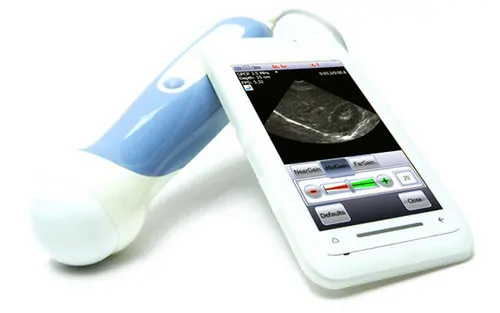Guest Blogger: Jenna

Rather than visit the hospital, you can use services like Md Aligne, an over-the-phone medical/doctor company. You can receive advice on how to manage your condition without stepping foot in a hospital.
Hospitals save lives and treat countless people each day. But at the same time, hospitals are a breeding ground for germs and bacteria. With the number of patients and visitors walking the hallways each day, some hospitals cannot maintain a high level of cleanliness. The hospital may appear clean at first glance, but they usually hide a few dirty secrets.
1. Nurses and doctors do not always wash their hands.
Hospitals see waves of patients all day long. And while hospital policy requires that doctors, nurses and other personnel frequently wash their hands, this simple practice can fall by the wayside on a busy day. Rather than sanitize hands between each patient, doctors and nurses may sanitize between every two or three patients. This increases the spread of germs.
2. Poor room cleanliness.
Hospitals routinely change bedding between patients, but they may not disinfect other surfaces inside the room. This includes the cabinets, the floor, the call buttons, the light switches and the door knob. They may wipe these surfaces to remove smudges and dust. However, a general purpose cleaner does not kill germs. Thus, germs remain in the room.
3. Improper disinfecting of the bathrooms.
Patient bathrooms are regularly disinfected. This includes the toilet, the sink, the guard rails and other surfaces. But unfortunately, the solution may not remain on surfaces long enough to kill germs, viruses and bacteria. For proper disinfection, many solutions must sit on a surface for five minutes, and then wiped off with a cloth. Because staff members have several rooms to clean, they typically spray the disinfected and immediately wipe the surface.
4. Unclean waiting rooms.
Ten or twenty people can visit a hospital waiting room each hour. They may touch the armrests on chairs, read the magazines and children may play with the toys. Unfortunately, these objects aren’t disinfected on an hourly basis. This can contribute to a secondary infection or illness.
5. Check-in desk.
If you must visit a hospital emergency room, bring your own pen. Upon check-in, the medical receptionist will provide forms for you to fill out, and perhaps hand you a pen. Since people constantly cough or sneeze in their hands, this pen might contain a variety of germs. Use your own pen or sanitize your hands immediately after using the hospital’s pen.
Being conscious of the germs around you is key to staying healthy and avoiding additional infections. Self-treat minor health issues at home, and visit a hospital only when absolutely necessary.





Can you please provide the scientific sources that you used to prepare this fantastic information?
Thanks.
Ociz
This is really common knowledge if you work at the bedside.
Patients and visitors also need to step up and take personal responsibility for their health and their own “germ footprint”. Wash your hands, wear masks, don’t strew your bodily fluids around the pace (ie. sneezing or coughing without covering it).
Sonda,
You are right. We are starting to make the transition of having patients become responsible for their own healthcare instead of physicians. For years people blindly followed the advise of medical providers and now we are asking people to be accountable for their own health decisions. This includes healthy eating, exercise, and hand washing. Excellent point.
Our son tested positive for MRSA after a stay in the Hospital recently. It was a very scary diagnosis but they were able to get it under control with an oral antibiotic thank goodness. We did not realize how prevalent MRSA is in hospitals until we started talking to the nurses that deal with it every day. We now use hand sanitizer much more often while visiting any doctors office or healthcare facility. I would agree that hospitals need to do a much better job disinfecting their rooms and equipment.
You are correct when you write about doctors and nurses not always washing their hands. I visited the local Urgent Care for a dog bite to my face. The doctor entered the room, greeted me and then proceeded to walk toward me to examine my wound. I stopped him and asked him to wash his hands and to put on gloves because I was bleeding from my wound. How disgusting, my initial reaction was to get up and leave. How many germs has this doctor passed to other patients.
Rhonda,
You are right to ask him to wash his hands and put on gloves. This protects the both of you.
I think sometimes they just forget, but most healthcare professionals would be thankful that you gave them a friendly reminder.
You make some excellent points, all of which match my clinical experience. Hospitals, like all clinical interventions, have benefits but also costs and risks. Infection risk is one. They also tend to cause or worsen sleep disturbance, and often contribute to or cause delirium. They contribute to financial distress and bankruptcies. Finally, there are the errors that reportedly lead to 100,000 American deaths annually – triple the rate related to gun use or automobiles. I recently read a review of wrong site surgeries, still surprisingly more common than they should be. Hospitals have their uses, and can be life-saving, but should not be entered into lightly or casually – patients and families need to maintain vigilance in these busy and often chaotic places.
I think awareness of the risk in a hospital is the key. People get too secure in the hospital and let their guard down. You should treat door handles, the toilet flush, and the floor as dirty as anywhere else.